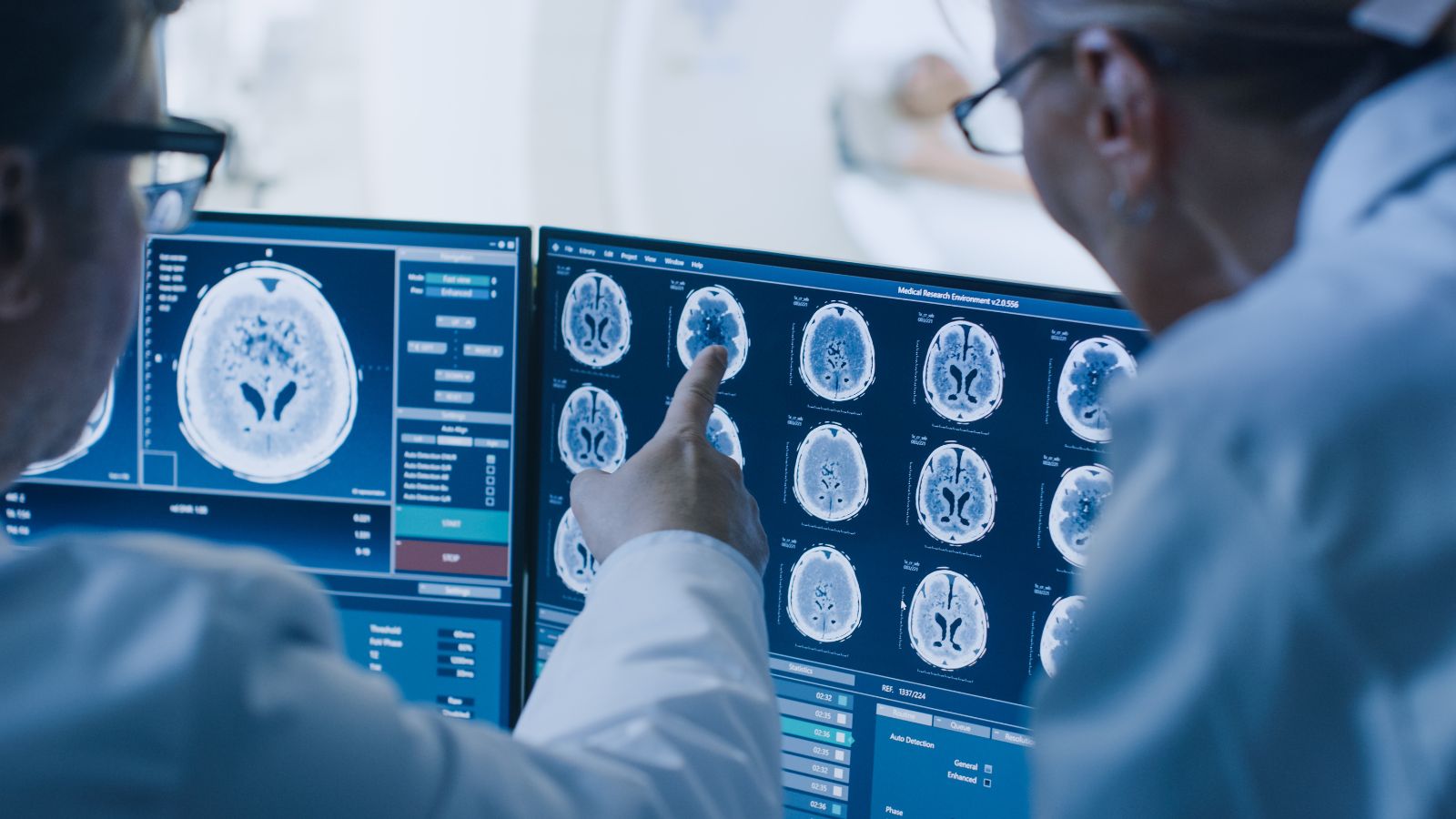The complex system of the CERN accelerator chain requires immense precision in order to operate. To address this need, CERN researchers developed artificial intelligence (AI) algorithms that predict and diagnose anomalies, minimising failures and keeping our infrastructure working around the clock. The same algorithms have the potential to improve people’s lives when applied to complications that occur in the human body.
The CAFEIN* platform was developed at CERN in collaboration with Consiglio Nazionale delle Ricerche and Politecnico di Milano in Italy to address challenges in both fundamental research and medicine. In particular, in the latter, it enables the detection of pathologies in the human body (such as brain pathologies) and predicts the risk of disease recurrence.
Among brain pathologies, stroke is one of the leading causes of severe disability worldwide. It is associated with a significant social and economic burden, which will dramatically increase over the coming decades due to the ageing population.
By correctly assessing a stroke patient’s risks and potential outcome, it is possible to provide improved and personalised treatment to help prevent relapse. The TRUSTroke project** was developed to ensure that as many patients as possible are treated and to reduce the numbers of patients discharged too early from hospital.
Under the coordination of Vall d'Hebron, a leading healthcare campus in Barcelona, CERN and eleven other partners from across Europe joined forces to assist clinicians, caregivers, and patients by creating AI algorithms using data confined to the hospital environment, which is the key feature of the CAFEIN platform. This approach, which uses local data samples without exchanging them, is known as Federated Learning (FL), and it can guarantee the confidentiality of patient data by sharing only the necessary information without sharing any individual’s personal data.
“AI algorithms trained using FL platforms like CAFEIN are being applied more and more in the medical domain, where privacy prevents the sharing of personal data. In addition to the ongoing TRUSTroke project, CERN’s developments are being used at the Medical School of the National and Kapodistrian University of Athens in brain-pathology screening using MRIs or, more recently, to develop risk-based cancer screening tools with the International Agency for Research on Cancer (IARC).”, says Luigi Serio, principal scientist in the Technology Department at CERN.
Two online public events have been organised to provide more information on the project:
- “TRUSTroke webinar on Federated Learning” on 28 September, 12.00 p.m. More information: https://indico.cern.ch/e/trustrokewebinar.
- “How AI and a CERN federated learning platform can assist clinicians in the management of stroke patients” on 29 September, 9.00 a.m. More information: https://indico.cern.ch/e/trustroke.
* The Computer-Aided deFEcts detection, Identification and classificatioN (CAFEIN) project has received support from the CERN budget for knowledge transfer to medical applications through a grant awarded in 2019. https://kt.cern/kt-fund/projects/cafein-federated-network-platform-development-and-deployment-ai-based-analysis-and
**The TRUSTroke project is funded by the European Union in the call HORIZON-HLTH-2022-STAYHLTH-01-two-stage under grant agreement No. 101080564

